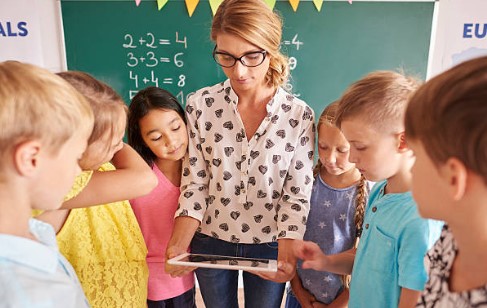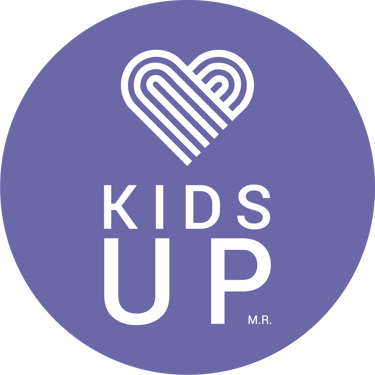The importance of teachers in education and the alliance with parents
Educators are role models for students. Their attitude, behavior and way of relating to others can significantly influence the way students see themselves and how they interact with others. A committed and passionate teacher can inspire his or her students to strive for their goals and believe in their own potential.
Kids UP
4/5/20243 min read


Professors, Educators, Teachers, whatever the name we give to this important role, are always role models for students. Their attitude, behavior and way of relating to others can significantly influence the way students see themselves and how they interact with others. A committed and passionate educator can inspire his or her students to strive for their goals and believe in their own potential.
The role of Educators in the detection and attention of individual needs
Teachers also play an important role in detecting and addressing the individual needs of each student. Through observation and daily interaction, they can identify learning difficulties, emotional problems or complicated family situations that affect students' academic performance. This allows us to intervene in a timely manner and find appropriate strategies to support each student individually.
Another fundamental aspect is the role of learning facilitator. Instead of being the only provider of knowledge, the educator must foster an active and participatory learning environment, where students are protagonists of their own learning process. This involves using different pedagogical strategies, such as group work, problem solving and the use of information and communication technologies.
The importance of Educators in training processes is indisputable. Its work goes beyond teaching academic content, since it also plays a fundamental role in the comprehensive development of students. From being a role model to detecting and addressing the individual needs of each student, it has the ability to transform lives and contribute to the development of a more just and equitable society.
The importance of the alliance between parents and teachers
The alliance between parents and educators is especially important in the field of early childhood and primary education. During these first years of life, children are in the process of cognitive, emotional and social development. Collaboration between parents and teachers at this stage can make a difference in the development of key skills, such as reading, writing and social skills. One way parents can help is by actively participating in their children's school life. This may involve attending parent-teacher conferences, helping out in extracurricular activities, or participating in school committees. By being present in their children's school life, parents demonstrate their commitment to their education and establish open and fluid communication with teachers. In addition, parents can support the work of trainers at home. This may include establishing study routines, encouraging reading at home, helping with homework, and providing an environment conducive to learning. Teachers can provide guidelines and resources so that parents can support their children's learning effectively. Parents can provide valuable information about their children's behavior, interests and needs, which can help educators adapt their teaching and offer personalized support. Strengthening the alliance between parents and teachers requires open and constant communication, active participation of parents, mutual respect, setting goals and monitoring progress, participation in school and community activities, creating spaces for dialogue and reflection, ongoing training, celebrating achievements, constructively resolving conflict, and continually evaluating and improving the alliance. By implementing these strategies, effective collaboration can be achieved that benefits the comprehensive development of students.
Creation of spaces for dialogue and reflection
To strengthen the alliance, it is important to create spaces for dialogue and reflection where both parties can share their concerns, ideas and suggestions. These spaces can be formal or informal meetings, discussion groups or even online platforms where opinions can be exchanged. The objective is to promote an environment of trust and openness, where relevant topics for the education of students can be addressed. Both parents and teachers can benefit from training and continuing education on topics related to education. This will allow them to acquire new tools and strategies to support student development. In addition, joint training can be an opportunity to strengthen the relationship between parents and teachers, by sharing knowledge and experiences.
It is important to recognize and celebrate students' achievements, as well as the efforts that both parents and teachers make to support their education. This may include organizing recognition ceremonies, presenting diplomas or certificates, or simply words of praise and thanks. Recognition and celebration strengthen the motivation and commitment of all parties involved.
Constructive conflict resolution
Sometimes conflicts may arise between parents and teachers due to differences in opinion or expectations. It is important to address these conflicts constructively, seeking solutions that benefit students. Open dialogue, mutual respect, and a willingness to listen to and understand the other party's perspectives are critical to resolving conflicts positively. To ensure that the parent-teacher partnership remains strong and effective, continuous evaluation and improvement of this collaboration is necessary. This involves regularly reviewing the strategies implemented, collecting feedback from parents, teachers and students, and making necessary adjustments. Continuous evaluation and improvement allow us to adapt to the changing needs of students and guarantee quality education.
Strengthening the alliance between parents and teachers requires open and constant communication, active participation of parents, mutual respect, setting goals and monitoring progress, participation in school and community activities, creating spaces for dialogue and reflection, ongoing training, celebrating achievements, constructively resolving conflict, and continually evaluating and improving the alliance. By implementing these strategies, effective collaboration can be achieved that benefits the comprehensive development of students.
